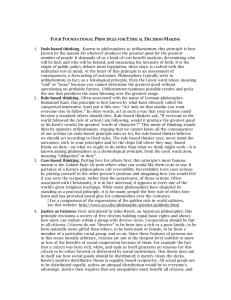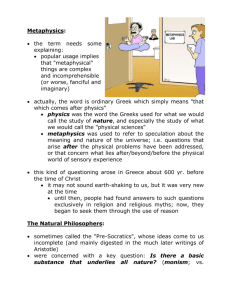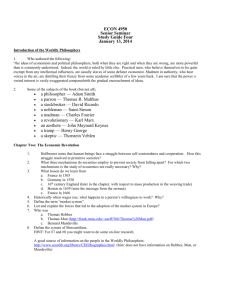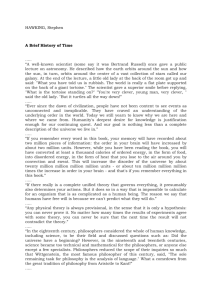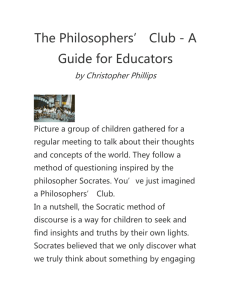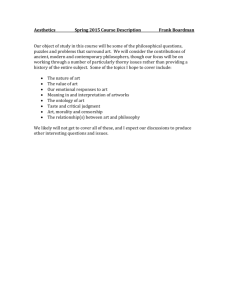Principles for Decisions
advertisement
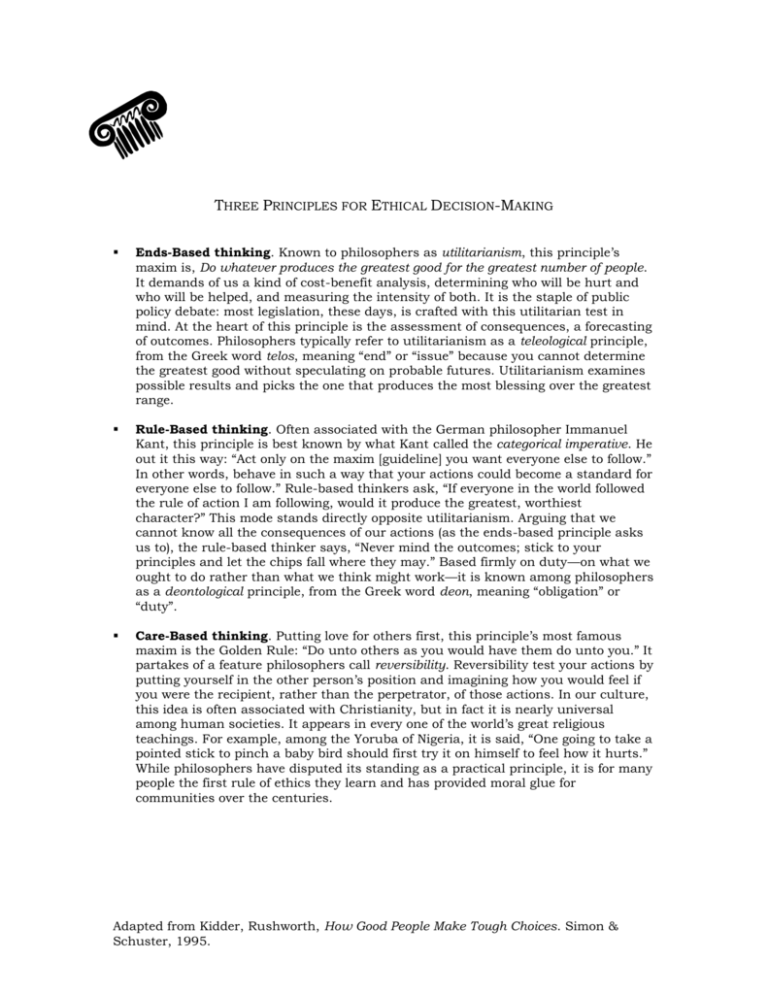
THREE PRINCIPLES FOR ETHICAL DECISION-MAKING Ends-Based thinking. Known to philosophers as utilitarianism, this principle’s maxim is, Do whatever produces the greatest good for the greatest number of people. It demands of us a kind of cost-benefit analysis, determining who will be hurt and who will be helped, and measuring the intensity of both. It is the staple of public policy debate: most legislation, these days, is crafted with this utilitarian test in mind. At the heart of this principle is the assessment of consequences, a forecasting of outcomes. Philosophers typically refer to utilitarianism as a teleological principle, from the Greek word telos, meaning “end” or “issue” because you cannot determine the greatest good without speculating on probable futures. Utilitarianism examines possible results and picks the one that produces the most blessing over the greatest range. Rule-Based thinking. Often associated with the German philosopher Immanuel Kant, this principle is best known by what Kant called the categorical imperative. He out it this way: “Act only on the maxim [guideline] you want everyone else to follow.” In other words, behave in such a way that your actions could become a standard for everyone else to follow.” Rule-based thinkers ask, “If everyone in the world followed the rule of action I am following, would it produce the greatest, worthiest character?” This mode stands directly opposite utilitarianism. Arguing that we cannot know all the consequences of our actions (as the ends-based principle asks us to), the rule-based thinker says, “Never mind the outcomes; stick to your principles and let the chips fall where they may.” Based firmly on duty—on what we ought to do rather than what we think might work—it is known among philosophers as a deontological principle, from the Greek word deon, meaning “obligation” or “duty”. Care-Based thinking. Putting love for others first, this principle’s most famous maxim is the Golden Rule: “Do unto others as you would have them do unto you.” It partakes of a feature philosophers call reversibility. Reversibility test your actions by putting yourself in the other person’s position and imagining how you would feel if you were the recipient, rather than the perpetrator, of those actions. In our culture, this idea is often associated with Christianity, but in fact it is nearly universal among human societies. It appears in every one of the world’s great religious teachings. For example, among the Yoruba of Nigeria, it is said, “One going to take a pointed stick to pinch a baby bird should first try it on himself to feel how it hurts.” While philosophers have disputed its standing as a practical principle, it is for many people the first rule of ethics they learn and has provided moral glue for communities over the centuries. Adapted from Kidder, Rushworth, How Good People Make Tough Choices. Simon & Schuster, 1995.
